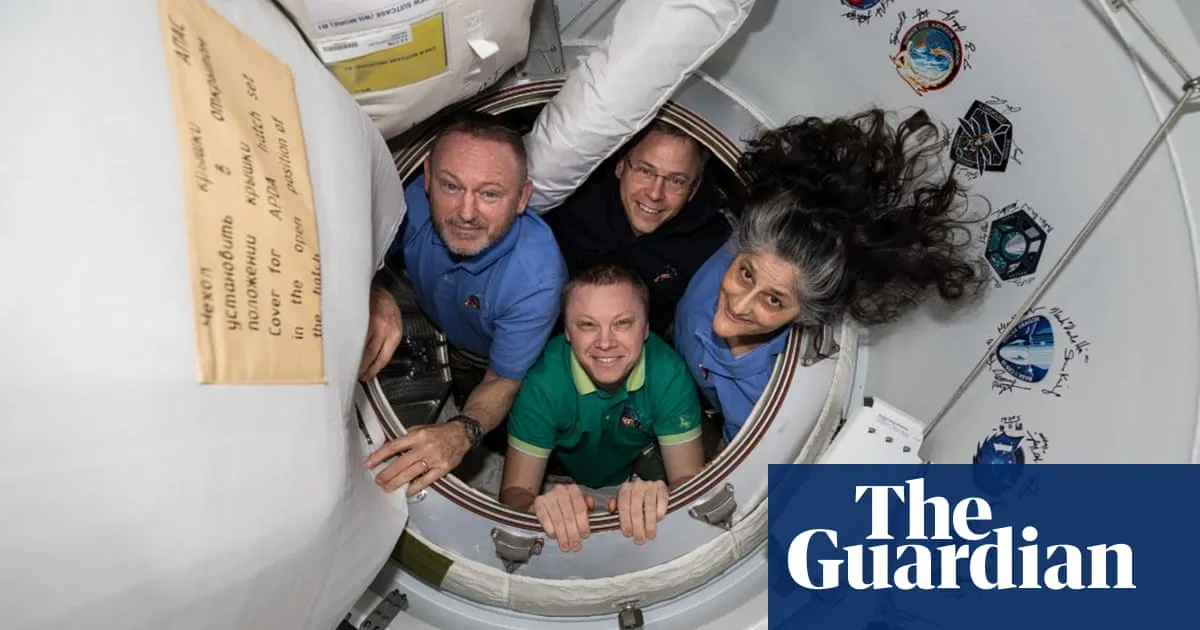
A pair of US astronauts, Barry “Butch” Wilmore and Suni Williams, are scheduled to return to Earth on Tuesday evening, following a remarkable nine-month stay aboard the International Space Station (ISS). This extended mission was marked by unexpected challenges, including propulsion issues with the spacecraft intended for their return. NASA has confirmed that the astronauts will be transported back home aboard a SpaceX Crew Dragon craft, which successfully docked with the ISS early on Sunday.
Wilmore and Williams have been on the ISS since June. Their original return plans were disrupted when the Boeing Starliner, the spacecraft they were testing during its maiden crewed voyage, encountered significant propulsion issues. As a result, the Starliner was deemed unfit for their return journey, leaving them stranded in space for much longer than anticipated. Their nine-month tenure aboard the ISS is notably longer than the standard ISS rotation for astronauts, which typically lasts around six months.
NASA announced on Sunday evening that the anticipated ocean splashdown off the Florida coast has been moved forward to approximately 5:57 PM ET (21:57 GMT) due to favorable weather conditions. This adjustment allows the ISS crew members enough time to complete necessary handover duties and provides operational flexibility ahead of less favorable weather expected later in the week.
Joining Wilmore and Williams on their return flight will be fellow NASA astronaut Nick Hague and Russian cosmonaut Aleksandr Gorbunov. The entire journey will be broadcast live starting Monday evening, coinciding with the hatch closure preparations for the Dragon capsule.
The return of Wilmore and Williams marks the end of an unprecedented ordeal. What was initially planned as a brief roundtrip has turned into a lengthy mission that has drawn public interest and sympathy. Their extended stay away from their families necessitated additional clothing and personal care items, as they had not packed enough for such a prolonged absence.
Although their time in space is significantly shorter than the US space record of 371 days set by NASA astronaut Frank Rubio in 2023, or the world record of 437 days held by Russian cosmonaut Valeri Polyakov aboard the Mir space station, the unexpected nature of their situation has resonated with audiences worldwide. As they prepare for their journey back home, Wilmore and Williams represent the resilience and dedication of astronauts who venture beyond our planet.